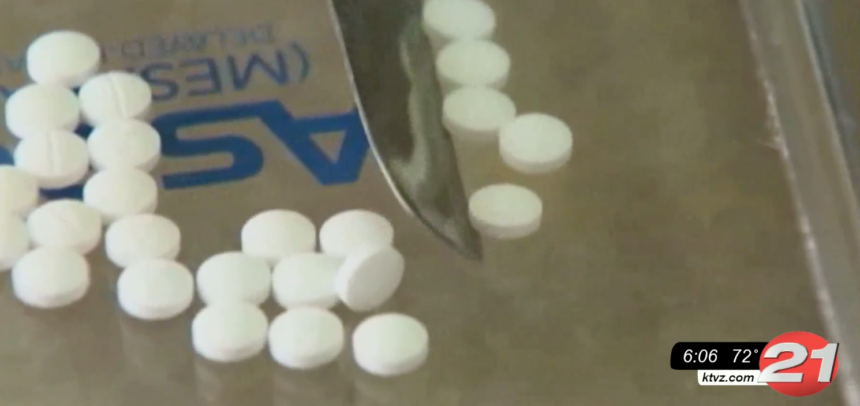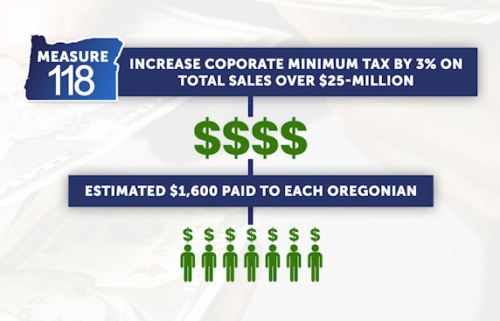Oregon sees a nearly 70% spike in drug overdose deaths

(Update: OHA correction; statistic covers all drug overdose deaths, not just opioids)
PORTLAND, Ore. (KTVZ) -- The Oregon Health Authority saw an alarming spike in drug overdose deaths in Oregon this past spring, compared to last year, and public health experts believe use of illicit fentanyl and methamphetamine is driving the increase.
Analysts in the Injury and Violence Prevention Section at the OHA Public Health Division found that Oregon saw a nearly 70% increase in the number of overdose deaths during April and May 2020 compared to the same time in 2019. There also was a nearly 8% increase in the number of overdose deaths during the first quarter of 2020 compared to the same period in 2019.
The preliminary data come from the State Unintentional Drug Overdose Reporting System (SUDORS), which includes combined and abstracted data from medical examiners and death certificates.
Additionally, the analysis found, between April and May 2020 there was a 28% increase in overdose deaths, and a more than 15% increase in overdose deaths between March and April. Opioid-involved deaths increased nearly 70% in April and May compared to the previous two months. And opioid-involved deaths accounted for almost 73% of total overdose deaths in May 2020.
Of opioid-involved deaths, the data show, fentanyl and heroin continue to be the drugs most frequently involved, and fentanyl-involved deaths accounted for almost 40% of total overdose deaths in May 2020.
The analysis also uncovered a continuing alarming trend in methamphetamine use: Methamphetamine/amphetamine-involved deaths accounted for more than 40% of all overdose deaths in May 2020.
What’s unclear is what effect the COVID-19 pandemic may have had on opioid misuse in Oregon.
“Until more data become available, it is premature to say how much of the spike in overdose deaths is attributable to the COVID-19 pandemic,” said Tom Jeanne, M.D., MPH, deputy state health officer and deputy state epidemiologist at the Public Health Division. “However, the realization that we will be dealing with COVID-19 for some time, and other stressors related to jobs, school and social isolation, may increase feelings of anxiety and depression, and that can lead to a harmful level of alcohol or other drug use.”
OHA continues to monitor and post finalized opioid data on its Prescribing and Drug Overdose Data Dashboard at https://www.oregon.gov/oha/ph/preventionwellness/substanceuse/opioids/pages/data.aspx.
Health officials are reminding people that opioid use disorder can be successfully treated. Those who need help to stop using opioids can talk to their health care providers or view OHA’s list of resources. In addition, Oregon law allows lay people to carry and use naloxone, a medication that can be used to reverse an opioid overdose, on other people. Learn more about naloxone.
Oregon-based nonprofit Lines for Life and OHA recently launched the Safe + Strong Helpline at 1-800-923-4357 (800-923-HELP). The line offers free, 24-7 emotional support and resource referral to anyone who needs it—not only those experiencing a mental health crisis. The Safe + Strong Helpline is a response to needs for emotional support around disasters like COVID-19 and wildfires and was funded by the CARES Act. Callers are routed to a counselor who can provide emotional support, mental health triage, drug and alcohol counseling, crisis counseling or just connection.



